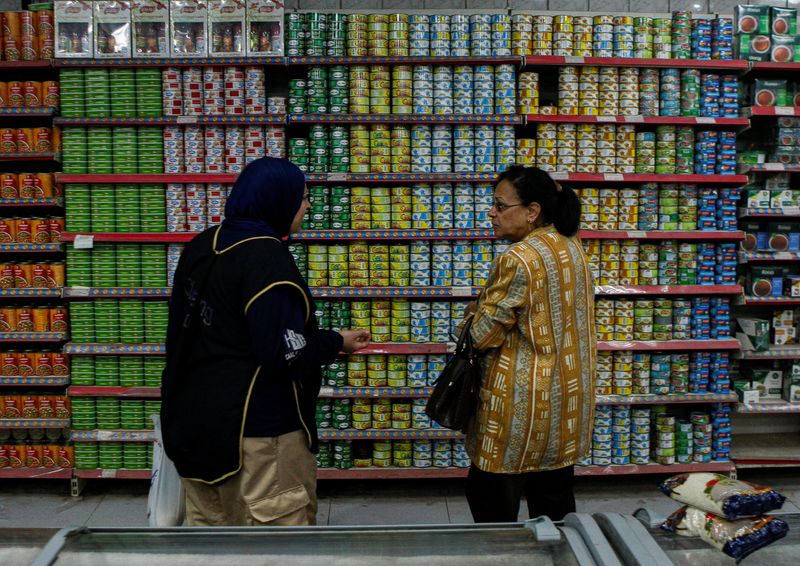
©Reuters. FILE PHOTO: Egyptian women talk as they buy subsidized food products at a consumer association market or ‘government-run supermarket’ amid high prices of consumer goods in Cairo, Egypt, December 4, 2023. REUTERS /Shokry Hussien/file Photo
CAIRO (Reuters) – The downturn in Egypt’s private sector activity deepened in February as a drop in goods in the Suez Canal due to attacks on ships in the Red Sea worsened a long-standing foreign currency shortage, according to a poll conducted Tuesday.
The S&P Global Purchasing Managers’ Index (PMI) for Egypt fell to 47.1 in February from 48.1 in January, remaining below the 50.0 threshold that separates growth from contraction for the 39th consecutive month.
The overall index value was the lowest in 11 months, with new orders falling at the fastest pace since March 2023 and domestic sales slumping due to inflationary price pressures and supply-side challenges , S&P Global said.
“Egypt’s non-oil economy appeared to suffer significantly in February, finding itself caught in the middle of the broader regional crisis,” said S&P economist David Owen.
According to the country’s statistics agency, inflation in Egypt slowed to 29.8% annually in January from 33.7% in December and to an all-time high of 38.0% in September.
In late February, the Egyptian government announced a major investment deal with the Emirati sovereign wealth fund ADQ that strengthened its international bonds and eased pressure on the currency.
But as attacks by Houthi militants in Yemen cause shippers to divert shipments from the Suez Canal, higher import costs have driven up purchasing costs for Egyptian companies. The disruption contributed to the biggest lengthening in supplier delivery times since June 2022, S&P Global said.
As demand contracted, companies reduced production, with the production sub-index falling to 44.3 in February from 46.6 the previous month.
“The pace of contraction was the strongest in just over a year, with comments from respondents pointing out that disrupted shipping and weaker tourism due to the Israel-Gaza war also impacted the activity,” S&P Global said.